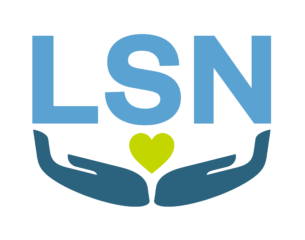VALUES
The overall goal of the training program is to help fellows develop into professional clinical social workers who can think about, and integrate into their practice, the values and qualities that we have found to be essential to the field of clinical social work. These values include use of a multicultural lens, self-care, social justice, and on-going development of self-awareness and professional identity, including ethics.
FELLOW SELECTION PROCEDURES
General Criteria
The CAPS fellow selection process is designed to choose fellows who are well suited to the training opportunities we offer and who evidence interest in and/or potential for development in the areas emphasized by our program. In our selection procedures we are attempting to seek out those applicants who evidence the following characteristics:
1) Show particular interest through their past experience and/or future career goals in providing therapy including crisis intervention.
2) Have earned an MSW and able to apply their knowledge to clinical practice.
3) Value difference and have sought experiences that evidence a commitment to multi-culturally humility, and have a strong interest in developing in this area during fellowship year.
4) Are committed to understanding the ethical guidelines of our field and applying them to their practice.
5) Demonstrate ability for self-reflection and openness to feedback to learn and grow.
6) Have the interpersonal skills to successfully relate to clients and other staff.
7) Have demonstrated a past history of success in their field placements.
8) Possess clinical skills and related experience indicating readiness for fellowship.
9) Values life-long learning and takes initiative in their own training.
Non-Discrimination Policy
Consistent with the University’s non-discrimination policy, CAPS’ fellowship program does not discriminate against individuals on the basis of: race/ethnicity, gender/sexual identification, sexual orientation, religion, age, ability status, or any other factor unrelated to ability to participate in the fellowship program. The University of North Carolina, Chapel Hill’s policy statement on non-discrimination reads as follows:
The University is committed to providing a welcoming environment for all members of our community and to ensuring that educational and employment decisions are based on individuals’ abilities and qualifications. Consistent with this principle and applicable laws, it is therefore the University’s policy not to discriminate in offering access to its educational programs and activities or with respect to employment terms and conditions on the basis of race, color, gender, national origin, age, religion, creed, disability, veteran’s status, sexual orientation, gender identity or gender expression [1] Such a policy makes sure that only relevant factors are considered and that unbiased and consistent standards of conduct and performance are applied. A copy of the University’s EPA and SPA Equal Opportunity Plans are available on the University’s Equal Opportunity website.
CAPS is committed to ensuring that the program is accessible to all fellows. On the most basic level, we comply with our agency and University’s non-discrimination policies. We also work to hold in mind subtler factors that could inadvertently restrict access. For example, we have chosen to only use phone interviews instead of in-person interviews to make sure that any interested applicant could apply, regardless of financial means to travel. Finally, the training program seeks out feedback from current and past fellows in order to make any necessary modifications regarding restricting program access.
CLINICAL OPPORTUNITIES
Brief Therapy
We utilize a brief treatment model at CAPS. This does not include specific session limits, but involves working on a defined concern that can be reasonably addressed through brief therapy. Fellows are expected to engage in clinical assessment, intervention planning, intervention delivery, and evaluation of services. Fellows are assigned clients who agree to audio/video taping and who are appropriate for their developmental level. If a fellow has specific clinical interests, supervisors and staff will try to facilitate this opportunity within their caseload. Fellows also typically have the chance to work with one long-term client during the year.
Triage
Triage is the manner in which all students enter our system. A routine triage appointment involves assessing the student’s needs, risk, and making an appropriate disposition for services. Some triage appointments may also involve crisis intervention. Fellows will be on a team with three staff members who will be available for assistance and consultation. They will begin by observing triage appointments, and are expected to progress to seeing students independently.
Referral Coordination
Students with presenting concerns which are not appropriate for brief therapy will be encouraged to utilize referral coordination appointments to assist them in getting connected to providers and resources in the community. Fellows will meet with these students to assess for barriers to treatment, foster motivation and readiness for engaging in treatment, and to assist students with referral and insurance information, guidance, support, and follow-up.
Group Therapy
CAPS has a thriving group therapy program and offers a variety of groups each semester. Fellows may have group therapy experience by facilitating or co-facilitating a group or by acting as a process observer. Current group offerings are listed on our website each semester. Groups have included: Body Image Group, Courage to Heal: A Sexual Assault Recovery Group, Emotional Wellness, Grief Group, International Student Support Group, Mindfulness and Meditation, Personal Exploration Group, Returning Students Group, Coping 101 Seminar, Yoga for Emotional Wellness and Road to Resilience group for students on academic probation. To see what groups are currently offered visit our groups page.
Academic Interventions
Students will occasionally seek a psychological withdrawal, exam excuse, or need assistance in petitioning to drop a course or semester. Fellows will be involved in assessing the student’s situation, making a determination of the appropriateness of the request, and completing and forwarding the necessary paperwork.
Outreach
Fellows will provide workshops or engage in other events as requested by student groups, classes, and university departments. Examples of outreach opportunities that trainees have completed in the past include: Fall Fest, tabling at the LGBTQ Ally Fair and stress management workshops. If fellows participate in a second year, they may have the opportunity for more extensive outreach/consultation on campus to include: needs assessment, networking and intervention with a focus of their choosing.
Training/Supervision
First year fellows may act as Referral Coordination coaches for MSW interns. Interns will begin by observing fellows providing referral coordination and will move towards co-facilitation of these appointments. Fellows will be expected to model clinical skills. Fellows may also have the opportunity to present social work seminars to MSW students on topics such as assessment & diagnosis and introductions to various treatment modalities. In the second year, fellows may have the opportunity to provide individual clinical supervision.
Move on to MODEL AND PHILOSOPHY OF TRAINING PROGRAM
Go back to POST-MSW FELLOWSHIP PROGRAM MAIN PAGE

